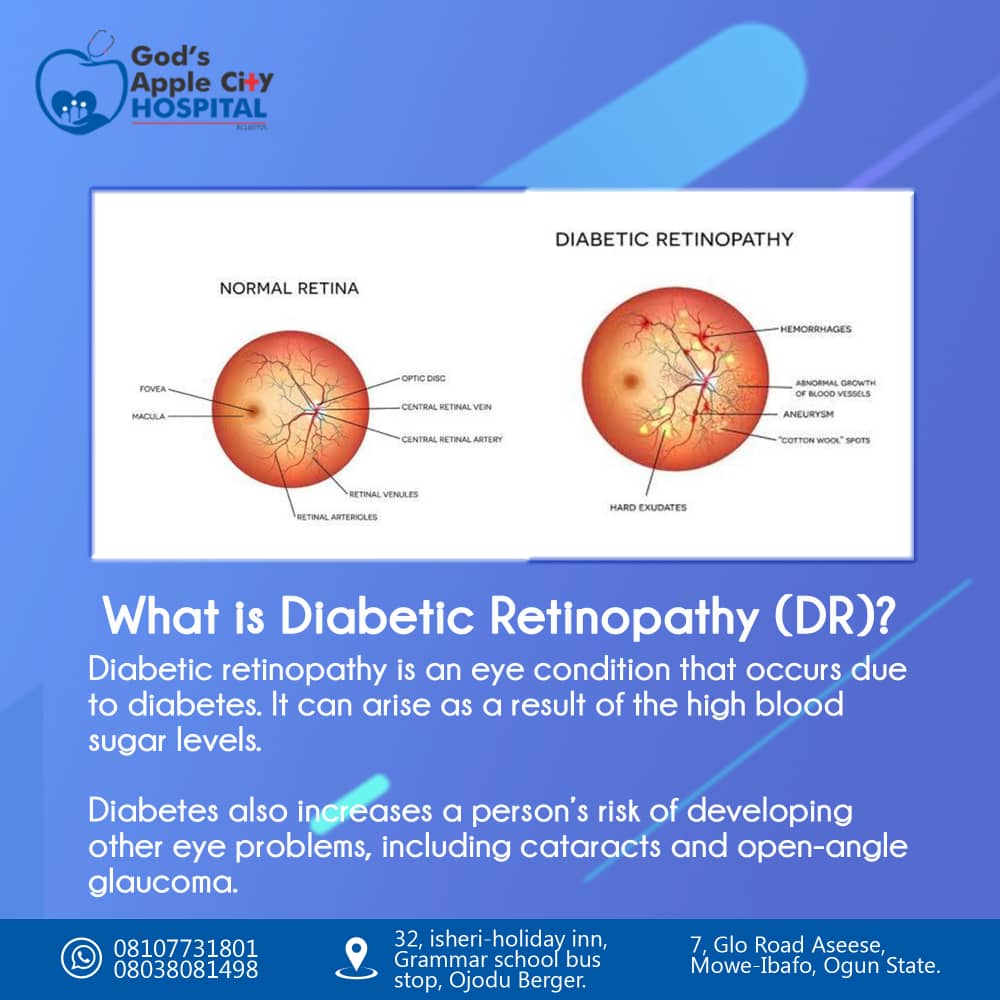What is Diabetic Retinopathy?
Diabetic retinopathy is an eye condition that occurs due to diabetes.
It can arise as a result of the high blood sugar levels.
Diabetes also increases a person’s risk of developing other eye problems, including cataracts and open-angle glaucoma.
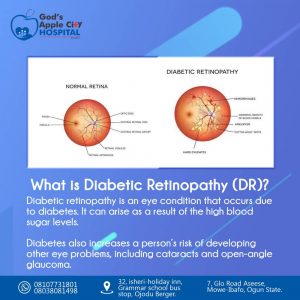
Symptoms of Diabetic Retinopathy
Diabetic retinopathy tends to affect both eyes. The signs and symptoms of this condition may include:
- Blurred vision
- Impaired color vision
- Eye floaters, or transparent spots and dark strings that float in the person’s field of vision and move in the direction that the person looks
- Patches or streaks that block the person’s vision
- Poor night vision
- A dark or empty spot in the center of the vision
- A sudden and total loss of vision
Complications of Diabetic Retinopathy
Without treatment, diabetic retinopathy can lead to various complications.
When blood vessels bleed into the main jelly that fills the eye, known as the vitreous, this is called vitreous hemorrhage. In mild cases, the symptoms include floaters, but more severe cases can involve vision loss, as the blood in the vitreous blocks light from entering the eye.
If the retina remains undamaged, bleeding in the vitreous can resolve itself.
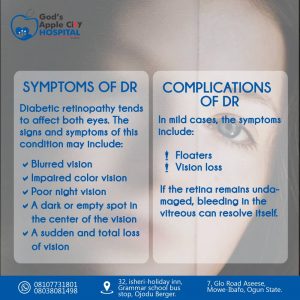
Risk factors of Diabetic Retinopathy
The risk is higher if the person:
- Has uncontrolled blood sugar levels
- Has high blood pressure
- Has high cholesterol
- Is pregnant
- Smokes regularly
- Has had diabetes for a long time
Diagnosis for Diabetic Retinopathy
The following methods can help eye doctors diagnose diabetic retinopathy:
- Dilated eye exam
- Fluorescein angiography
- Optical coherence tomography
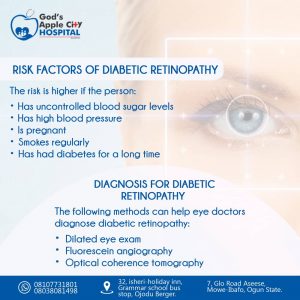
Treatment for Diabetic Retinopathy
- Laser treatment
- Injections
- Eye surgery
Prevention for Diabetic Retinopathy
People with diabetes can take steps to control their blood pressure, such as:
- Eating a healthful and balanced diet
- Reaching or maintaining a moderate body weight
- Quitting smoking
- Moderating their alcohol intake
- Taking any antihypertensive measures that the doctor recommends
- Attending regular screenings
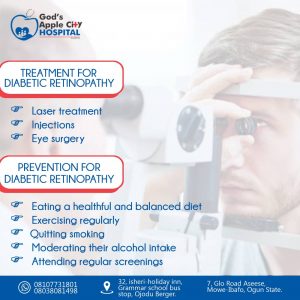
https://web.facebook.com/Godsapplecity
read other blogs https://godsapplecityhospital.com/breast-cancer-signs-and-detection/

